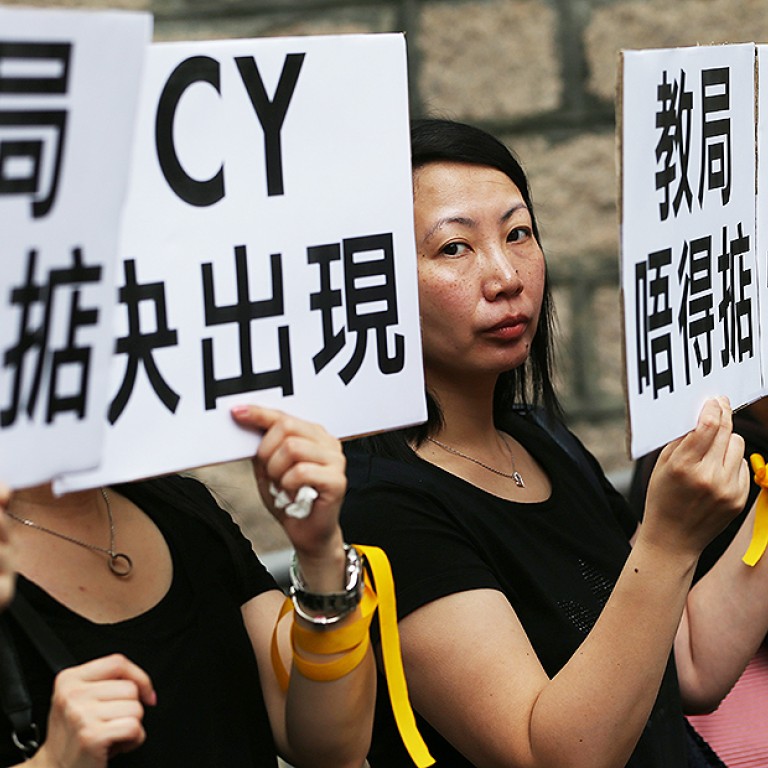
Schools sinking under rent pressure need government help to stay afloat
Philip Yeung says the vacant campuses in Hong Kong should be put to immediate use
Legendary sociobiologist E. O. Wilson has a provocative quote that captures the Hong Kong situation beautifully. He said: "Competing is intense among humans, and within a group, selfish individuals always win. But in contests between groups, groups of altruists always beat groups of selfish individuals."
Our selfish rich are getting filthy rich, while we lag behind Singapore in education, housing and technology. Even in per capita gross domestic product, the Lion City has overtaken selfish Hong Kong, despite our overwhelming advantage of being turbocharged by the massive Chinese economy.
When greed is good, life is a misery for most. The lovely old Hong Kong is no more. Hundreds of small shops have been elbowed out by purveyors of luxury goods. And now, in this city where nothing is sacred, schools are the latest victims.
Hong Kong must be the only city in the world where the fate of schools is tied to rent affordability.
In the past year alone, three schools have faced closure as leases run out. In Tin Shui Wai, a popular kindergarten was willing to pay twice the existing rent but still lost out in a ruthless rental bidding war.
The International Montessori School in Tin Hau also faced eviction, but was reprieved because the government intervened - as the government always does when an international school is involved. It did so years ago when the Canadian Overseas International School (now renamed Renaissance College) was allocated a vacant school building following its closure due to rent pressure.
The kindergarten in Tin Shui Wai was not so lucky. Unaided, it died a sudden death.
Why the double standards? Lacking strategic and common sense, the government adopts a strange policy that is school-based rather than student-based. Even if it is not pro-school, it should be pro-student.
A third school is now teetering on the brink, St Margaret's Girls' College, a venerable school of 49 years on Hong Kong Island. It faces eviction in August .
The greedy landlord raised the rent (including management fees) by 87 per cent when the lease was last renewed. Expecting another hefty increase when its current lease runs out, the school - which caters mostly to ethnic minority students from South Asia - has given up hope of renewing it.
After much back and forth with the authorities, it has finally been given temporary accommodation at a vacant school in Sha Tin, on the condition that it stops accepting new students.
In effect, this means the school will be phased out in five years, when its current Form One students graduate. This is death by a thousand cuts, losing students and teachers for strictly bureaucratic reasons. It's a needless death.
Given that over 70 per cent of St Margaret's students are from ethnic minority families, it is an international school in all but name - it has a higher ratio of non-Chinese students than many international schools proper. It is the poor man's international school, to all intents and purposes.
Such mistreatment doesn't square with the new official policy of catering to the education of ethnic minority students.
The differential treatment of schools is ethically indefensible, and a prima facie case for the Equal Opportunities Commission, if not the Office of the Ombudsman.
Due to declining birth rates, schools have been closing and their campuses are sitting vacant. Why not let thriving but rent-afflicted schools move into these unused premises, both now and in the future?
Repeated appeals to the permanent secretary of education, Tse Ling Kit-ching, have brought the same cold, lackadaisical and bureaucratic reply: wait for the next school allocation exercise, which guarantees nothing.
I cringe when I hear the word "exercise": we are not talking about an exercise in the abstract; we are talking about students who need a place to learn and grow, and the clock is ticking.
Typically, officials lack a sense of urgency, thus missing out on many opportunities for a speedy solution when the action called for is so simple.
This city has become a cauldron of resentment, boiling over with street protests.
As the government is the author of much of our misery - through its tilt towards the property sector and the fact it did away with rent control - it can bring quick, massive relief, if not by reintroducing rent control, then by imposing a punitive tax on exorbitant rent hikes, effectively broadening its narrow tax base.
For senior bureaucrats to twiddle their thumbs while children lose their beloved schools is akin to fiddling while Rome burns.
Spare us the double talk of a school allocation exercise when a solution is at your fingertips. What should exercise officials is to make sure children don't suffer needlessly.

